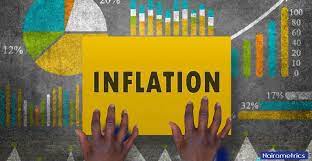By Hosea Parah, Abuja
In a recent report published by the National Bureau of Statistics (NBS), Nigeria’s inflation rate increased to 28.92% in December 2023. This marks a 0.72% rise compared to the previous month’s inflation rate of 28.20%. The report reveals that the country’s inflation rate has been on an upward trajectory, indicating a significant increase in the average price level.
On a year-on-year basis, the headline inflation rate in December 2023 was 7.58% points higher than the rate recorded in the same month of the previous year. This suggests a substantial increase in the cost of goods and services compared to December 2022, which had an inflation rate of 21.34%.
Analyzing the data further, it is evident that both urban and rural areas experienced inflationary pressures. The urban inflation rate in December 2023 stood at 31.00%, while the rural inflation rate was 27.10%. These figures indicate an 8.98% and 6.38% increase, respectively, compared to the inflation rates recorded in December 2022.
Food inflation also witnessed a significant surge, reaching 33.93% on a year-on-year basis. This represents a 10.18% increase compared to December 2022. The rise in food prices can be attributed to increases in the prices of bread and cereals, oil and fat, potatoes, yam and other tubers, fish, meat, fruit, milk, cheese, and eggs.
The report also highlights that the “All items less farm produces and energy” or core inflation rate stood at 23.06% in December 2023. This figure excludes the prices of volatile agricultural products and energy. Core inflation increased by 4.85% compared to December 2022, indicating a rise in the prices of non-food items.
It is worth noting that the Consumer Price Index (CPI), which measures the average change in the prices of goods and services consumed by people, plays a crucial role in calculating the inflation rate. The CPI combines economic theory, sampling, and statistical techniques to produce a weighted measure of average price changes in the Nigerian economy.
According to the report, Nigeria continues to grapple with high inflation, as the country’s inflation rate rose to 28.92% in December 2023. The increase in the cost of living, particularly in urban and rural areas, as well as the surge in food prices, poses significant challenges for the Nigerian population. The government and relevant stakeholders will need to implement measures to address these inflationary pressures and ensure stability in the economy.

